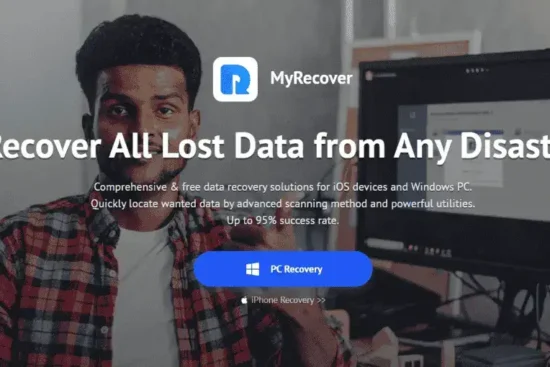
Search engine optimization, or SEO, is the practice of optimizing websites to rank higher in search engine results pages (SERPs). SEO is essential for any website owner who wants to improve their online visibility, drive more traffic to their site, and ultimately increase sales and revenue.
In this blog post, we’ll discuss that How SEO helps the fundamentals of SEO and share tips and best practices to help you optimize your website for search engines.
What is SEO?
SEO is the process of improving the quality and quantity of traffic to your website through organic search engine results. Organic traffic refers to the traffic that comes to your website from unpaid sources, such as search engines, as opposed to paid advertising.
SEO involves optimizing your website’s content, structure, and HTML code to make it more visible and attractive to search engines. The ultimate goal of SEO is to rank higher on SERPs, which can lead to increased website traffic, improved brand awareness, and ultimately, more conversions and revenue.
Why is SEO important and How SEO helps?
SEO is important because search engines, such as Google, Bing, and Yahoo, are the primary way people find information online. In fact, according to a study by MOZ, over 90% of online experiences begin with a search engine. This means that if your website doesn’t appear on the first page of search engine results, you are missing out on a lot of potential traffic and revenue.
SEO can also help you build trust and credibility with your audience. When your website appears on the first page of search engine results, it sends a message to your audience that you are a reputable and trustworthy source of information.
Keyword Research For SEO
Keyword research is a crucial step in any SEO strategy because it helps you understand what your target audience is searching for and how they are searching for it. By identifying the keywords and phrases that people are using to find your products or services, you can optimize your website content to target those specific terms.
In addition, keyword research can also help you identify gaps in your content strategy. By identifying relevant keywords that you are not currently targeting, you can create new content that addresses those topics and attracts more traffic to your website. This can help you stay ahead of the competition and ensure that your website is providing the most relevant and useful information to your target audience.
The first step in any SEO strategy is keyword research. Keyword research involves identifying the words and phrases that people are searching for in search engines. This information is crucial to optimizing your website because it helps you to understand what your target audience is looking for and what terms they are using to find it.
To conduct keyword research, you can use tools like Google Keyword Planner or SEMrush. These tools will help you identify the search volume, competition, and relevance of specific keywords and phrases.
Once you’ve identified the keywords you want to target, you can start to incorporate them into your website content, metadata, and other on-page optimization factors.
On-Page Optimization:
On-page optimization refers to the optimization of individual web pages to rank higher in search engines. This includes optimizing the content, metadata, images, and other on-page factors.
Here are some on-page optimization best practices:
- Include target keywords in the title tag, meta description, and header tags
- Use descriptive and keyword-rich URLs
- Optimize images by using descriptive filenames and alt tags
- Use internal linking to help search engines understand the structure of your website
- Ensure that your website is mobile-friendly and has a fast loading speed
Off-Page Optimization:
Off-page optimization refers to the optimization of external factors that influence the ranking of your website in search engines. This includes link building, social media, and other external factors.
Here are some off-page optimization best practices:
- Build high-quality backlinks from authoritative websites in your industry
- Engage with your audience on social media platforms to build brand awareness and drive traffic to your website
- Use online directories and review sites to improve your online visibility and reputation
Technical SEO
Technical SEO refers to the optimization of technical elements on your website that affect its performance in search engines. This includes website structure, coding, and other technical factors.
Here are some technical SEO best practices:
- Use a sitemap to help search engines understand the structure of your website
- Use canonical tags to avoid duplicate content issues
- Use structured data to help search engines understand the content on your website
- Ensure that your website is crawlable and indexable by search engines
Content Marketing
Content marketing is the process of creating high-quality, informative, and engaging content to attract and engage your target audience. Content marketing is an essential component of any SEO strategy because it helps to drive traffic to your website and improve your search engine rankings.
Here are some content marketing best practices:
- Create high-quality, informative, and engaging content that is relevant to your target audience
- Use keyword research to inform your content strategy
- Optimize your content for on-page factors like title tags, header tags, and meta descriptions
- Promote your content on social media platforms and other online channels to increase its visibility
Analytics and Reporting
Analytics and reporting are essential for measuring the success of your SEO strategy. By analyzing your website’s traffic, rankings, and other metrics, you can identify areas for improvement and refine your strategy over time.
Here are some analytics and reporting best practices:
- Use tools like Google Analytics to track website traffic, rankings, and other metrics
- Set up conversion tracking to measure the success of your SEO strategy
- Regularly review and analyze your website’s performance to identify areas for improvement
Conclusion
SEO is a critical component.






